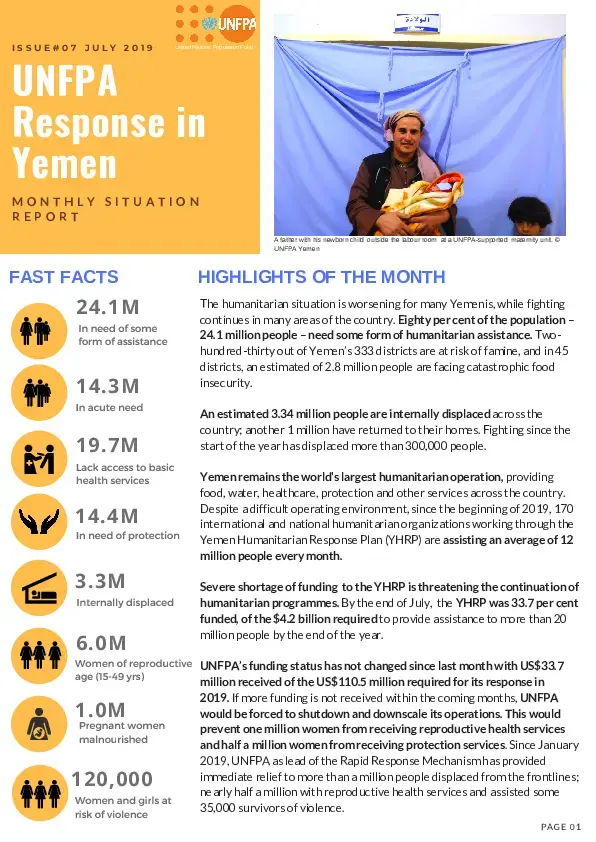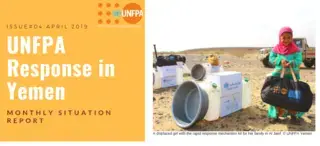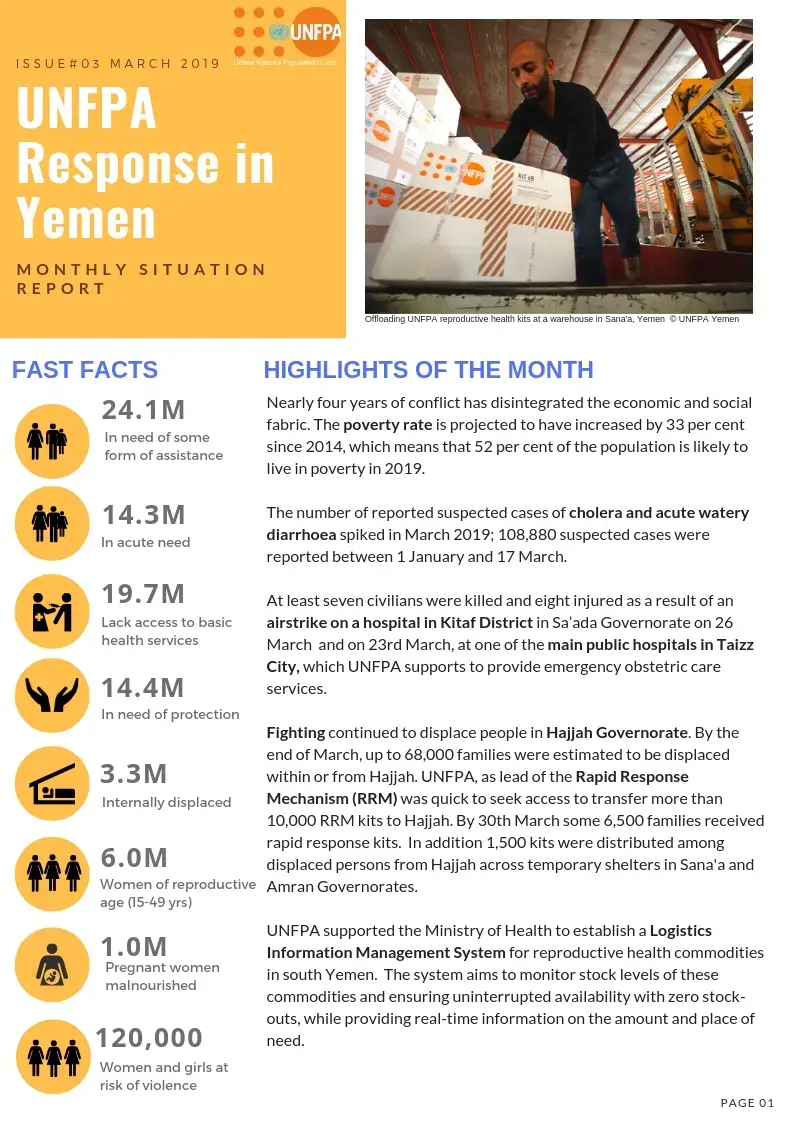The humanitarian situation is worsening for many Yemenis, while fighting continues in many areas of the country. Eighty per cent of the population – 24.1 million people – need some form of humanitarian assistance. Two-hundred-thirty out of Yemen’s 333 districts are at risk of famine, and in 45 districts, an estimated of 2.8 million people are facing catastrophic food insecurity.
An estimated 3.34 million people are internally displaced across the country; another 1 million have returned to their homes. Fighting since the start of the year has displaced more than 300,000 people.
Yemen remains the world's largest humanitarian operation, providing food, water, healthcare, protection and other services across the country. Despite a difficult operating environment, since the beginning of 2019, 170 international and national humanitarian organizations working through the Yemen Humanitarian Response Plan (YHRP) are assisting an average of 12 million people every month.
Severe shortage of funding to the YHRP is threatening the continuation of humanitarian programmes. By the end of July, the YHRP was 33.7 per cent funded, of the $4.2 billion required to provide assistance to more than 20 million people by the end of the year.
UNFPA’s funding status has not changed since last month with US$33.7 million received of the US$110.5 million required for its response in 2019. If more funding is not received within the coming months, UNFPA would be forced to shutdown and downscale its operations. This would prevent one million women from receiving reproductive health services and half a million women from receiving protection services. Since January 2019, UNFPA as lead of the Rapid Response Mechanism has provided immediate relief to more than a million people displaced from the frontlines; nearly half a million with reproductive health services and assisted some 35,000 survivors of violence.




